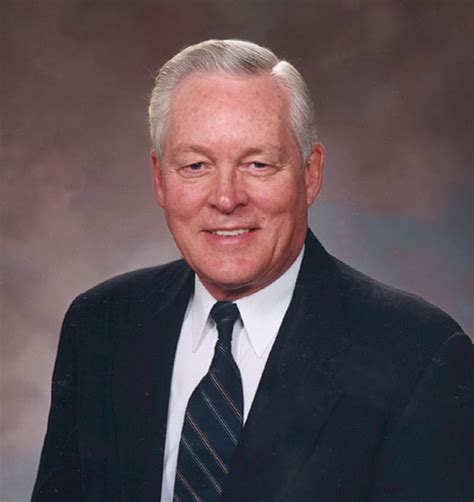A Quote by Deborah Sampson
Repentance is a sweet solace to conscience as well as the most complete atonement to the Supreme Judge of our offenses; notwithstanding, the tongue of malevolence and scurrility may be continually preparing its most poisonous ingredients for the punishment of a crime, which has already received more than half a pardon.
Related Quotes
Through the infinite Atonement, God has provided a means whereby we can both overcome our sins and become completely clean again. This is made possible by the eternal law of mercy. Mercy satisfies the claims of justice through our repentance and the power of the Atonement. Without the power of the Atonement and our complete repentance, we are subject to the law of justice.
We have more poets than judges and interpreters of poetry. It is easier to write an indifferent poem than to understand a good one. There is, indeed, a certain low and moderate sort of poetry, that a man may well enough judge by certain rules of art; but the true, supreme, and divine poesy is equally above all rules and reason. And whoever discerns the beauty of it with the most assured and most steady sight sees no more than the quick reflection of a flash of lightning.
The central trait of sociopathy is a complete lack of conscience, which is very difficult for most people to get their heads around, because those of us who do have a conscience can't really imagine what it would be like if we didn't. Most people think that deep down everybody has a conscience, and it turns out that's just not true.
For every crime that comes before him, a judge is required to complete a perfect syllogism in which the major premise must be the general law; the minor, the action that conforms or does not conform to the law; and the conclusion, acquittal or punishment. If the judge were constrained, or if he desired to frame even a single additional syllogism, the door would thereby be opened to uncertainty.
Indeed, the keynote of government is injustice. With the arrogance and self-sufficiency of the King who could do no wrong, governments ordain, judge, condemn, and punish the most insignificant offenses, while maintaining themselves by the greatest of all offenses, the annihilation of individual liberty.
Forgiveness involves pardon. Basically, that is like erasing their offenses toward us from a marking board. We immediately wash their offenses away like a wave washing away a message in the sand. Second, forgiveness involves caring for the offending person because most people who offend us have something in their own heart that needs healing. When we forgive others, they are released from our anger and we are healed by God.
The Atonement of Jesus Christ and the healing it offers do much more than provide the opportunity for repentance from sins. The Atonement also gives us the strength to endure "pains and afflictions and temptations of every kind," because our Savior also took upon Him "the pains and the sicknesses of his people" (Alma 7:11). Brothers and sisters, if your faith and prayers and the power of the priesthood do not heal you from an affliction, the power of the Atonement will surely give you the strength to bear the burden.
The Savior desires to save us from our inadequacies as well as our sins. Inadequacy is not the same as being sinful - we have far more control over the choice to sin than we may have over our innate capacity. . . . A sense of falling short or falling down is not only natural but essential to the mortal experience. Still, after all we can do, the Atonement can fill that which is empty, straighten our bent parts, and make strong that which is weak.





































